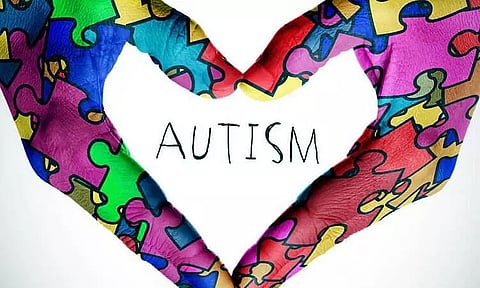
- Home
- Live Blog
- Breaking News
- Top Headlines
- Cities
- NE News
- Sentinel Media
- Sports
- Education
- Jobs

On 2nd April 2008, World Autism Awareness Day was first observed to recognise and spread awareness for the rights of persons with Autism. Since then, it is observed annually.
Parents of children with Autism in India face utmost difficulties in obtaining an accurate diagnosis of their children. A parent may take their child to a paediatrician only to be reassured that their child is simply "slow". Unsatisfied, they may visit a psychologist, to be told that, their child is "mentally subnormal". Convinced that their child doesn't fit the standard picture of intellectual disability, they may visit a psychiatrist, to be told that their child has Attention Deficit Hyperactive Disorder and must be placed on medication to regulate hyperactivity. After months of sedation and unsatisfactory progress, they may again begin a cycle of checking out the right name for their child's condition.
With time and transition, fortunately, the method of obtaining a diagnosis of autism in India has been improving, as more paediatricians have become conscious of the condition. Some doctors may feel that nothing is often gained by a diagnosis of autism if services aren't available; yet, as more children are diagnosed with ASD and there is more awareness about the disorder, there will be an increasing requirement for services.
On this day let us understand more about this condition and come together to spread awareness about this condition. Autism Spectrum Disorder is among the 21 disabilities recognised by the Rights of Persons with Disabilities Act 2016 that guarantees them the enjoyment of human rights and entitlements and benefits under various Government schemes. Additionally, the National Trust Act also has specific provisions for persons with autism.
Autism Spectrum Disorder is a neuro-developmental disorder characterised by impairment in social interactions, verbal and non-verbal communication and by restricted or repetitive behaviour.
There is no known single cause for autism, and there may be many different factors that put a child at higher risk of having ASD. Evidence suggests that both genetic and environmental factors contribute to the risk of Autism. Autism is four times more common in boys than in girls.
Children with ASD have problems with understanding the meaning of words, taking turns in the back-and-forth of conversations, interacting with people, tuning into the thoughts and feelings of others, understanding what their own senses are telling them. These problems often create confusion, frustration and anxiety and result in tantrums, aggression, stereotypic (odd, repeated) movements, self-abuse, withdrawal or difficulties in learning simple tasks.
There is no medical cure for ASD but there are many types of interventions and strategies available for people with autism that are appropriate to their needs and can be given by a multi-disciplinary team. These include physical therapy, occupational therapy, speech-language therapy, social skill training, and applied behaviour analysis and in certain cases, medication for specific symptoms. Children and persons with autism will need structured, consistent and predictable environments and they learn best when information is presented verbally and visually. Early diagnosis with early intervention helps a child develop better.
Ronnie (name changed) was enrolled in Shishu Sarothi (ASD Unit) in the year 2018 when he was 4 years old. Diagnosed as having Autism with behaviour problems, at the time, he didn't respond to his name when called, he didn't follow commands, had oro-motor problems, did not mingle with peers, had sensory issues, motor problems, and was dependent in all his activities of daily living (ADL).
With intensive interventions by the multi-disciplinary team, he slowly began to develop his motor skills, and is now able to write words and numbers. He understands and follows commands, and his sitting tolerance has improved. He is independent in toileting, bathing, and can dress by himself. He now expresses his needs through gestures. He is cooperative during all the activities and his behavioural problems have also reduced. Today, he is 7 years old and is studying in Class 1 in a regular mainstream school.
Ronnie's story gives us hope that with timely and persistent interventions across all development domains, it is possible for children with autism to be part of our mainstream. However, we need to recognise that children with autism are part of our human diversity. Each child with autism may be functioning at a different level and our efforts must be directed to assessing them thoroughly to find their specific abilities, so as to build on it as we go forward with rehabilitation plans.
It is important that we are all more aware of ASD and understand, accept and support families of children with ASD. Widespread awareness about autism, sensitivity and early intervention are the keys to opening up the world of opportunities for children with ASD and ensure their full participation in society and respect for their inherent dignity.
Also Read: Assam Assembly Election 2021 Update